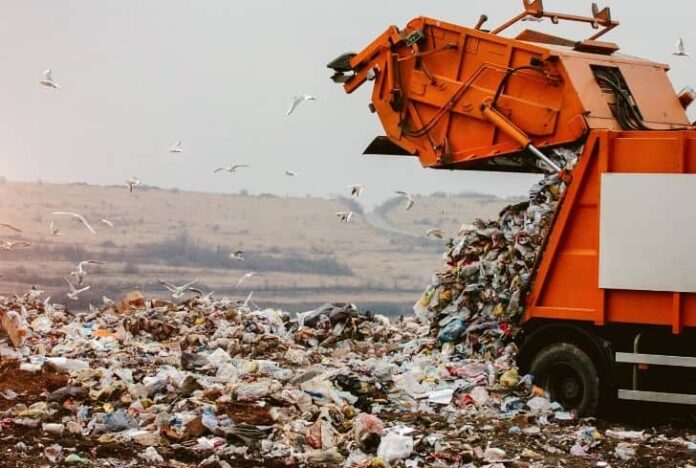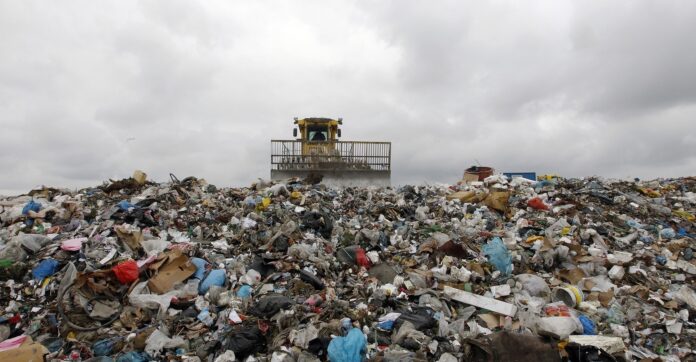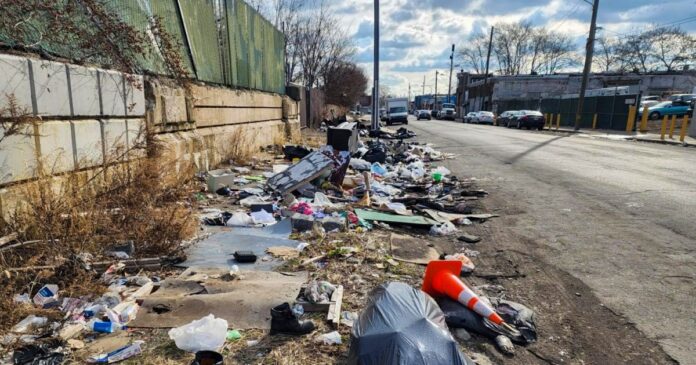
The solid waste problem in urban areas is a complex issue with many factors influencing it.
In this blog post, we will explore some of the most important factors that contribute to the solid waste problem in cities.
We will also provide some possible solutions to help mitigate the problem. Read on to learn more about what causes this problem in cities and what you can do to help reduce it.
The Increase in Population and Accompanying Development in Urban Areas
As the world’s population continues to grow and move into urban areas, the problem of solid waste management becomes more pressing. There are a number of factors that contribute to this problem in urban areas, including:
Population density
The more people there are living in close proximity to each other, the more waste is produced. This is because people generate more waste when they are living in close quarters – for example, when there is less space to store garbage, people are more likely to simply throw it out.
Development

As cities develop and become more industrialized, the amount of solid waste they produce increases. This is because industrial activity generates a lot of it, which can be difficult to dispose of properly.
Lack of infrastructure
In many developing countries, there is a lack of infrastructure needed to properly manage solid waste. This includes things like trash collection services, incinerators, and landfills. Without these facilities, it is much harder to keep cities clean.
Poverty
Poverty is another factor that contributes to this problem in urban areas. Poor people are often forced to live in cramped and crowded conditions, which leads to higher levels of garbage production. Additionally, poverty can lead to a lack of access to proper sanitation facilities, which also contributes to the problem.
Poorly Designed or Maintained Infrastructure
One of the main issues facing solid waste management in urban areas is poorly designed or maintained infrastructure. This can include everything from a lack of proper trash bins and recycling facilities to a lack of reliable transportation for waste collection.
This can make it difficult for residents to properly dispose of their waste, leading to more litter and illegal dumping. It can also make it harder for collectors to do their jobs effectively, leading to missed pickups and overflowing dumpsters.

Investing in proper infrastructure is essential for solving this problem in urban areas. Without it, any other efforts will be less effective and more costly in the long run.
Lack of Awareness about Waste Management and Recycling
Lack of awareness about waste management and recycling is one of the most significant contributing factors to the solid waste problem in urban areas.
In many cases, individuals are simply not aware of the importance of proper management and recycling practices. As a result, they do not take the necessary steps to ensure that their junk is properly managed and recycled. This lack of awareness can have a number of negative consequences.
First, it leads to increased amounts of junk being generated.
Second, it increases the likelihood that this waste will end up in landfills or other inappropriate waste disposal sites.
Finally, it contributes to environmental pollution and degradation.
There are a number of ways to address this issue. One is to increase public awareness about the importance of proper waste management and recycling practices.
This can be done through education and outreach programmes targeted at both children and adults. Another approach is to make recycling more convenient and accessible for people living in urban areas.

This can be done by providing more public recycling facilities or by working with private businesses to promote recycling programmes.
Inefficient or Nonexistent Waste Management Systems
In many cities, garbage is simply dumped in landfills or incinerated, with little regard for recycling or other forms of junk reduction. This can lead to environmental problems, as well as public health concerns.
One of the biggest issues with inefficient waste management systems is that they often don’t take into account the need to recycle or reduce the amount of junk that is produced.
This means that more and more materials are ending up in landfills, where they can release harmful chemicals and pollutants into the environment. It also means that valuable resources are being wasted, instead of being reused or recycled.
In addition to harming the environment, inefficient waste management systems can also pose a serious health risk to those who live near landfill sites or incinerators.
Exposure to hazardous chemicals and pollutants can cause a variety of health problems, including respiratory illnesses, cancers, and birth defects.
It’s important for city leaders to be aware of this issue and take steps to address it. One way to do this is by investing in better infrastructure for recycling and junk reduction.
Another is by increasing public awareness about the importance of reducing, reusing, and recycling materials.
Illegal Dumping

Illegal dumping is often done by businesses or individuals who are trying to avoid the cost of proper disposal. They may also be unaware of the consequences of their actions. Regardless of the reason, illegal dumping is a crime and should be reported to the authorities.
If you see illegal dumping taking place, do not hesitate to contact your local law enforcement or solid waste department. By taking action, you can help keep your community clean and safe for everyone.
How to Reduce the Solid Waste Problem in Urban Areas?
There are a number of ways to reduce the solid waste problem in urban areas.
One way is to increase recycling and composting efforts. This can be done through public education campaigns and by providing incentives for residents to recycle and compost.
Another way to reduce the solid waste problem is to reduce the amount of waste that is generated in the first place. This can be done by encouraging residents to purchase products with less packaging, or to reuse and recycle items instead of throwing them away.
Finally, it is also important to develop infrastructure in urban areas that can efficiently manage solid waste. This includes ensuring that there are adequate numbers of trash and recycling bins, as well as providing reliable pick-up services.
Conclusion
There are many factors that influence the solid waste problem in urban areas. In this article, we have discussed some of the most important ones.
Population density, lack of infrastructure, and poverty are the main reasons why this problem persists in many cities around the world.
With a better understanding of these factors, we can begin to develop solutions that will help to reduce the amount of solid waste produced in our cities.








